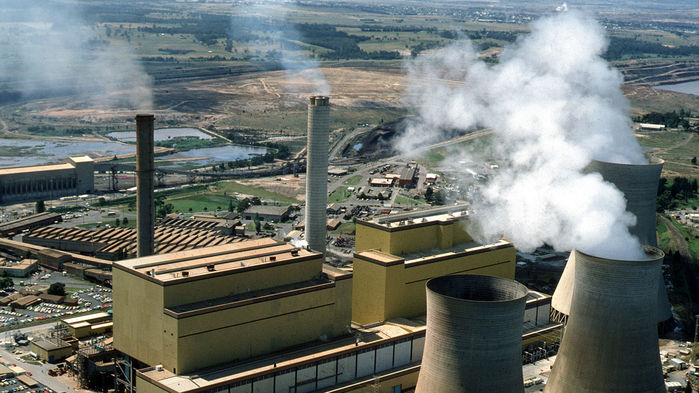11 Dec 2024

Tired Earth
By The Editorial Board

A panel led by Australia’s chief scientist has called for the government to set a clean energy target to reduce emissions from electric power plants that would help the country meet its commitments under the Paris climate agreement. Though any goal is seen as a welcome step toward resolving the nation's long-standing emissions policy paralysis, many worry the panel has set the bar too low.
The recommendation comes from a five-member panel led by Alan Finkel, a neuroscientist and former chancellor of Monash University in Melbourne, Australia. Under the proposed scheme, power plants would receive certificates for producing clean electricity in proportion to how far their carbon emissions fall below a specified threshold. Technologies such as solar and wind would benefit most, but plants using gas and coal—paired with carbon capture and storage—could also earn certificates. Electricity retailers would then have to purchase enough certificates to demonstrate that a certain percentage of their electricity comes from low-emissions sources.
The report recommends that the clean energy target be set so that electricity sector emissions are reduced by 28% below 2005 levels by 2030 and cut further, to an unspecified level, by 2070. The report does not set a threshold for emissions generated during production or the percentage of clean energy to be supplied to consumers; presumably these will be set by the government.
The plan, part of a report on the future security of the national electricity market, has gotten mixed reviews from environmentalists. "While the Finkel review is a step forward, much more needs to be done to reduce the emissions of Australia’s biggest polluter—the electricity sector," reads a statement issued by Amanda McKenzie, CEO of the Climate Council in Potts Point, Australia, an organization that seeks to educate the public on climate change.
Ian Lowe, an energy policy specialist at Griffith University in Nathan, Australia, near Brisbane, backs the need to set a clean energy target but is disappointed by the timetable for a transition to clean energy. "Basically, these recommendations would allow dirty old coal-fired power stations to continue operating for decades," he says.
Others note that Australia has pledged to reduce all emissions by 28% below 2005 levels by 2030. To meet that target, "the electricity sector can and needs to deliver much greater percentage reductions," says Frank Jotzo, an energy economist at Australian National University (ANU) in Canberra. Matthew Stocks, a renewable energy specialist at ANU, hopes the new report will “take the politics out of energy policy” by setting a clear policy that will spur investment in energy infrastructure.
The review panel was set up after 900,000 households lost power during a blackout in southern Australia last September. In addition to the strategy for emissions reductions, the report has recommendations for increasing energy security and reliability and reducing prices for consumers.
All of the recommendations require action by Parliament to implement. The two major parties appear to disagree over how ambitious the clean energy target should be, Stocks notes. But he’s cautiously optimistic: "We could be closer to a compromise than at any time I’ve seen before."
Source:sciencemag.org
Comment